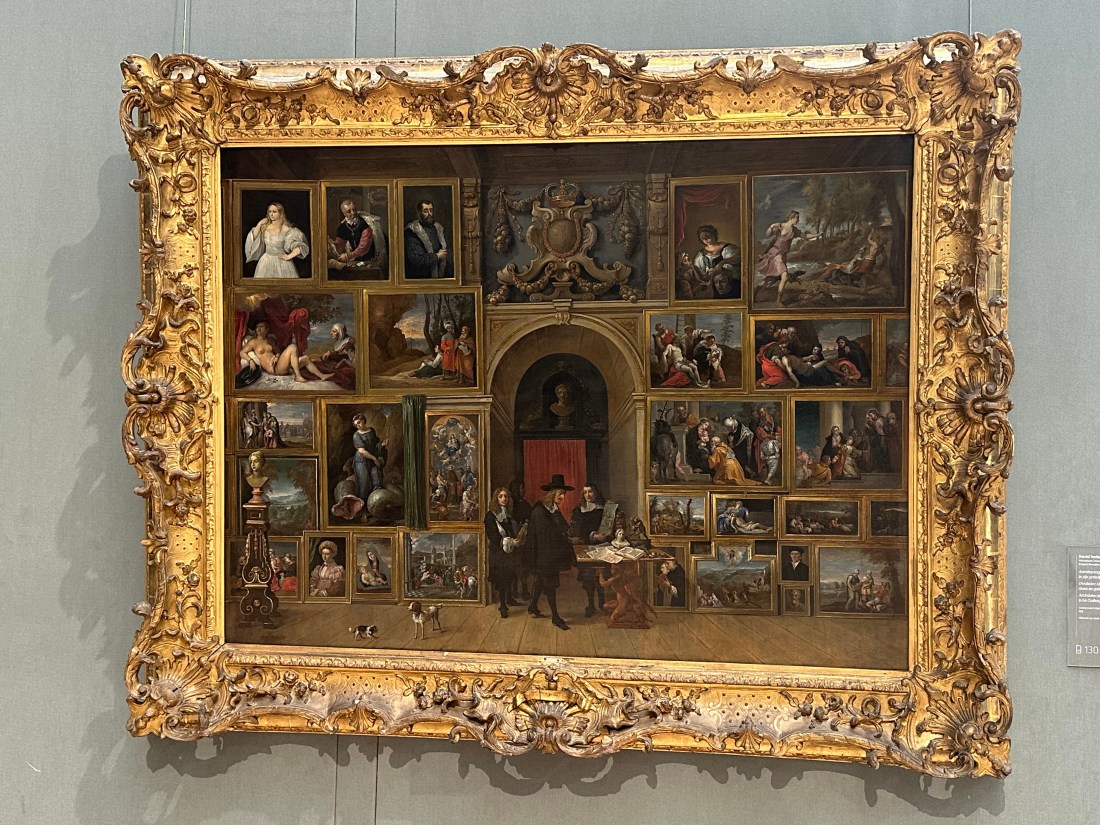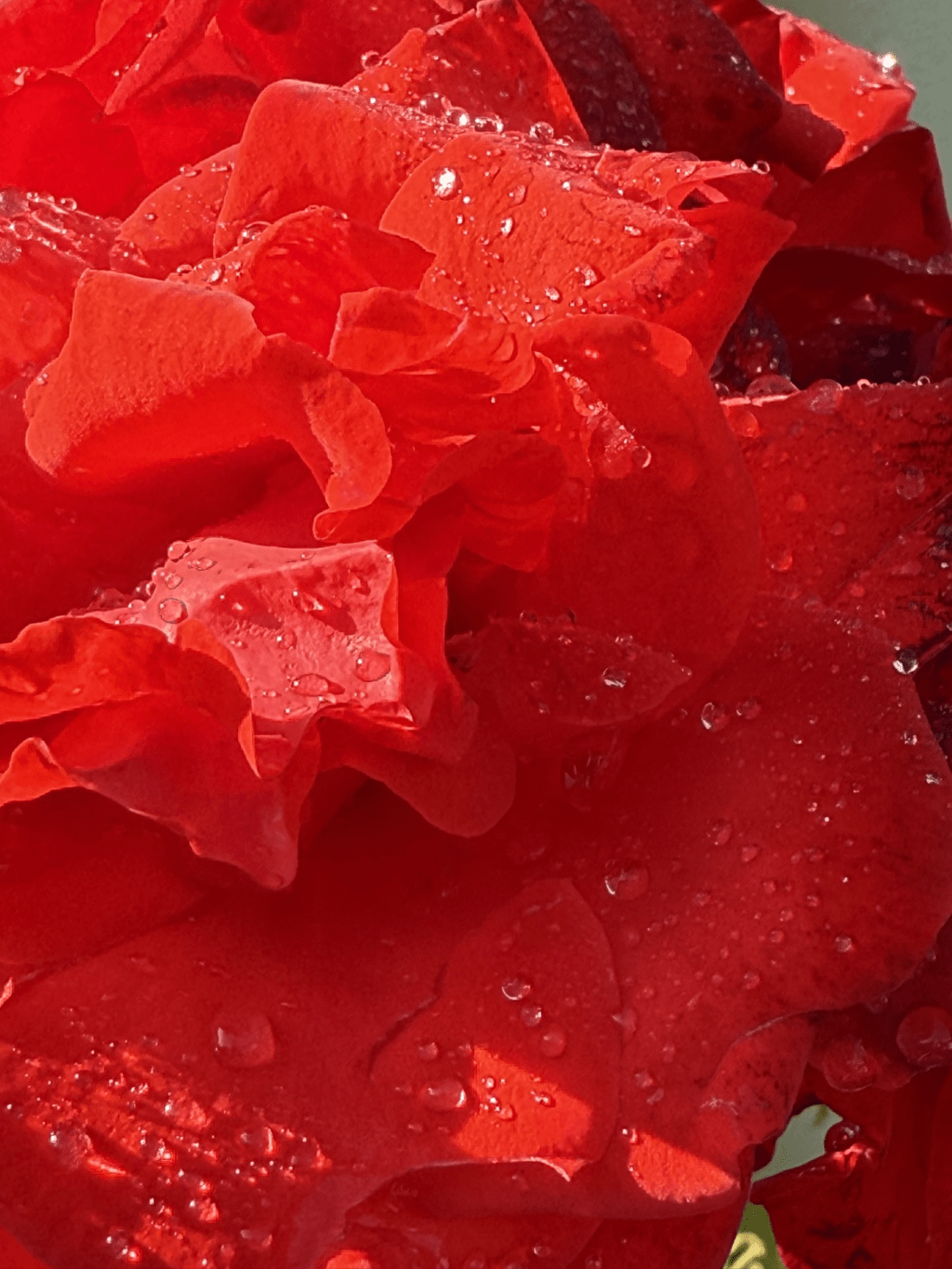Thank you to Freya Pickard for selecting my haiku for publication
Roberta Writes – Book promotion: This Is How We Eat anthology collated by Yvette Prior
My contribution to This Is How We Eat reflects on over exercise and a restricted diet in pursuit of the idealised body and perceived good health. I’m grateful to be part of this anthology alongside seventeen thoughtful writers.

You can read Yvette’s post about my contribution here: https://phpub.wordpress.com/2026/02/25/author-spotlight-robbie-cheadle-overexercising-and-restriction-this-is-how-we-eat/
This Is How We Eat (2026) brings together 17 authors who explore how food shapes memory, identity, emotion, culture, and connection. More than a collection of food stories, the book considers how eating influences community, belief, and becoming. It invites readers to reflect on their own tables — the meals that formed them, the flavors that anchored them, the rituals that sustained them — and offers a virtual slice of cake and a place at a longer table.
Blurb
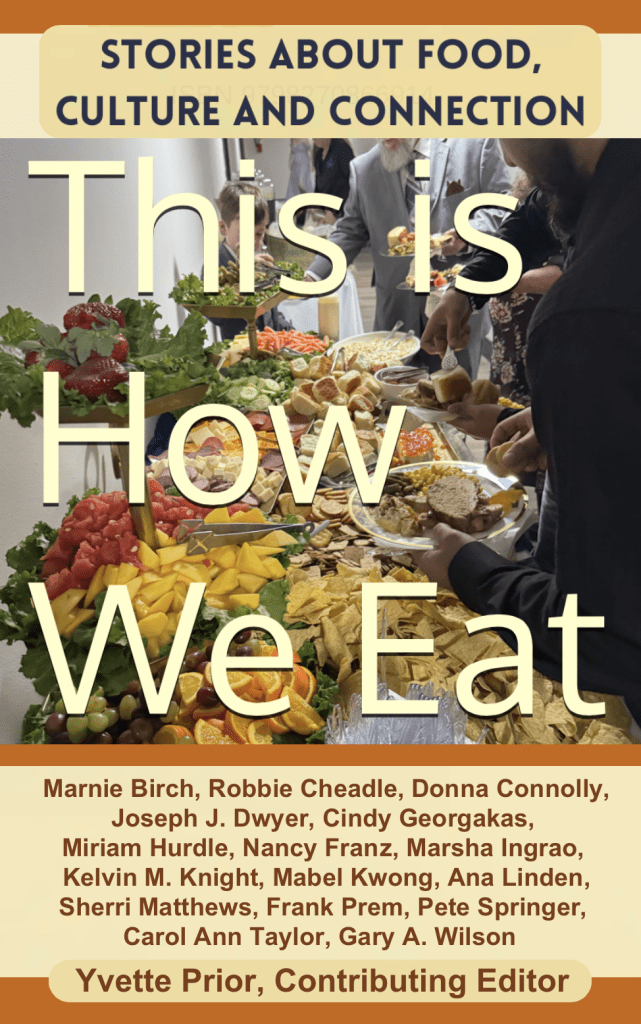
This Is How We Eat: Stories about Food, Culture, and Connection gathers seventeen diverse voices in an anthology that blends memoir, fiction, and poetic reflection. What began as an open invitation to explore “how we eat” unfolded into a deeply personal collection grounded in episodic memory and lived experience.
Within these pages, readers will encounter stories of migration and hospitality, body image and intuitive eating, gardening with grandchildren, solo dumpling dinners, budgeting with food, faith expressed through meals, and everyday rituals that shaped identity. Two layered fiction chapters provide a strong narrative close, reminding us that food can connect strangers, calm the body, and carry emotional depth.
While vivid food descriptions and a handful of recipes appear throughout, this is not simply a book about food. It is an exploration of human experience, belonging, culture, and the relationships formed away from and around the table. The anthology invites readers to reflect on their own tables — the choices they have made, the flavors that anchored their meals, and the connections that continue to shape who they are.
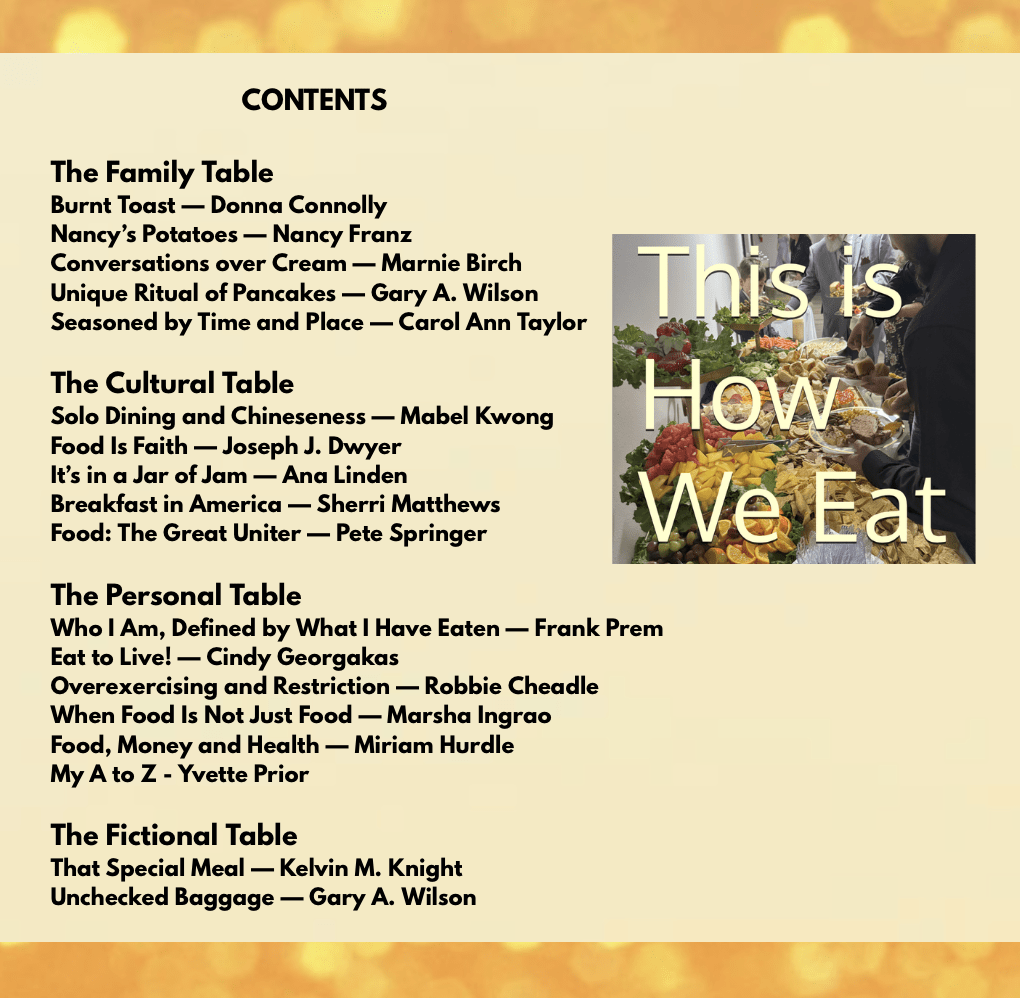
Purchase This Is How We Eat
AVAILABLE NOW
● Amazon & Kindle
● Goodreads
● Priorhouse Master Page
About Robbie Cheadle
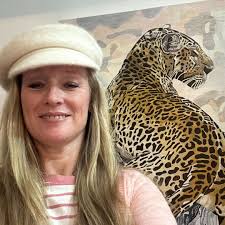
South African author, photographer, and artist, Robbie Cheadle, has written and illustrated seventeen children’s books, illustrated a further three children’s books, written and illustrated four poetry books and written and illustrated one celebration of cake and fondant art book with recipes. Her work has also appeared in poetry and short story anthologies.
Robbie also has two novels and a collection of short stories published under the name of Roberta Eaton Cheadle and has horror, paranormal, and fantasy short stories featured in several anthologies under this name.
You can find Robbie Cheadle’s artwork, fondant and cake artwork, and all her books on her website here: https://www.robbiecheadle.co.za/
Social Media Links
Bluesky: https://bsky.app/profile/robbiecheadle.bsky.social
YouTube: https://www.youtube.com/channel/UCVyFo_OJLPqFa9ZhHnCfHUA
Goodreads: https://www.goodreads.com/author/show/15584446.Robbie_Cheadle
TSL Publications: https://tslbooks.uk/product-tag/robbie-cheadle/
Amazon: https://www.amazon.com/stores/Robbie-Cheadle/author/B01N9J62GQ
Unsplash profile: https://unsplash.com/@r_cheadle
Roberta Writes – “Beach Huts (tanka prose)” by Robbie Cheadle on MasticadoresUSA
Thank you to Barbara Leonhard for publishing my tanka prose piece about my childhood, Beach Huts, on MasticadoresUSA.
Roberta Writes – d’Verse, Esther Chilton’s Writing Challenge, and Thursday Doors
d’Verse – Poetics Tuesday: Beginnings are Endings
Punam hosted a fun challenge this week for d’Verse Poetics Tuesday. You can read other poets contributions here: https://dversepoets.com/2026/02/24/poetics-tuesday-beginnings-are-endings/. I decided to go with a positive poem with an ethereal, dream-like quality (I hope).
Clutching at Dreams
I reach out, desperate to grasp it
elusive happiness
tumbling and rolling over itself,
a curtain of water plunging down … down …
I sense freedom
morning dew glimmering on a leaf
reflecting light in a blaze
of molten sunlight concentrated
into a fat globule of gold
a momentary gift from nature
available to rich and poor alike
no ownership rights available
its existence brief and perilous
as it edges down the midrib
heading towards its grand finale
dancing in a diamond studded gown
before reaching the lip … then falling
my mind falls with it … falling … falling
diving into exhilarating space
all this happened, more or less
Thursday Doors
You can join in Dan’s fun Thursday Doors photographic challenge here: https://nofacilities.com/2026/02/26/more-snow-doors/
These are a few photographs I took at the Museum of Fine Arts in Brussels. They all features doors of some kind. The four pictures are as follows:
- The entrance into one of the galleries;
- Untitled 12 (Bodybuilders) by David Altmejd (sculpture);
- Market Garden Courtyard by Jan Siberechts; and
- Archduke Leopold William in his Gallery of Italian Paintings by David Teniers II
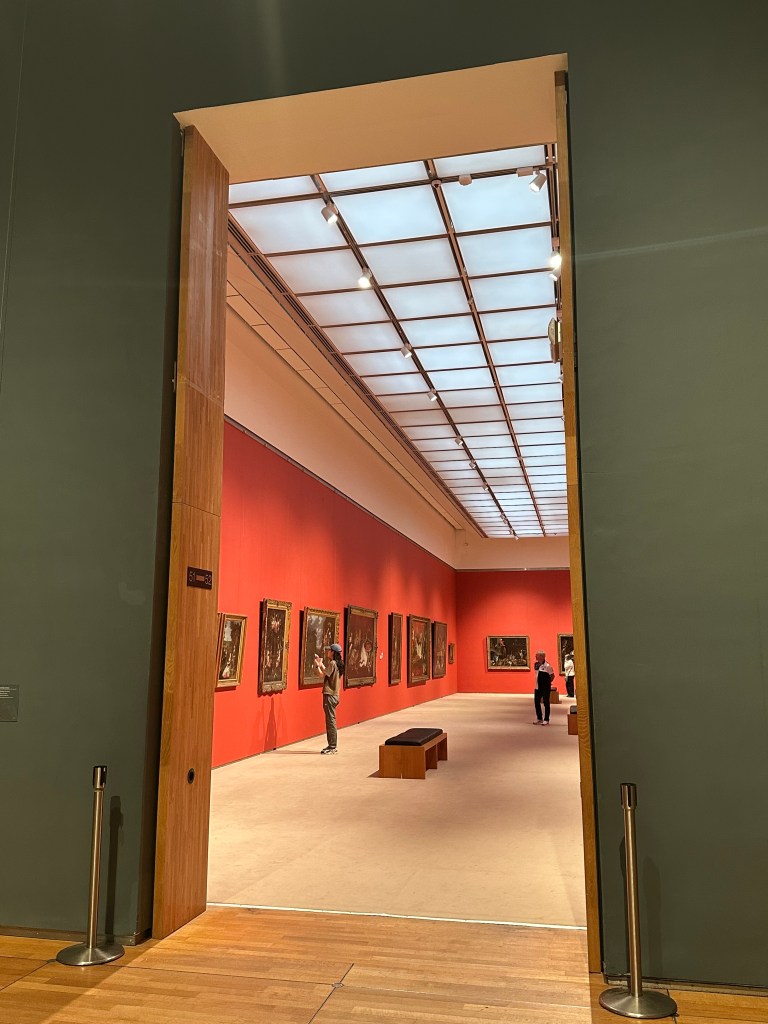
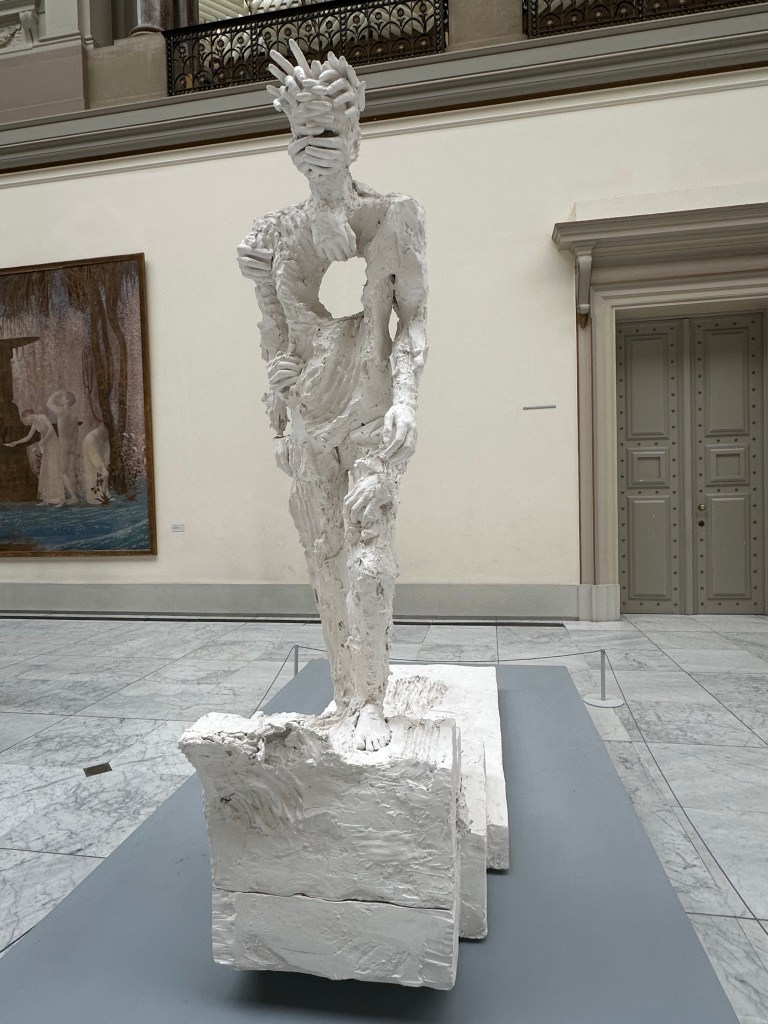
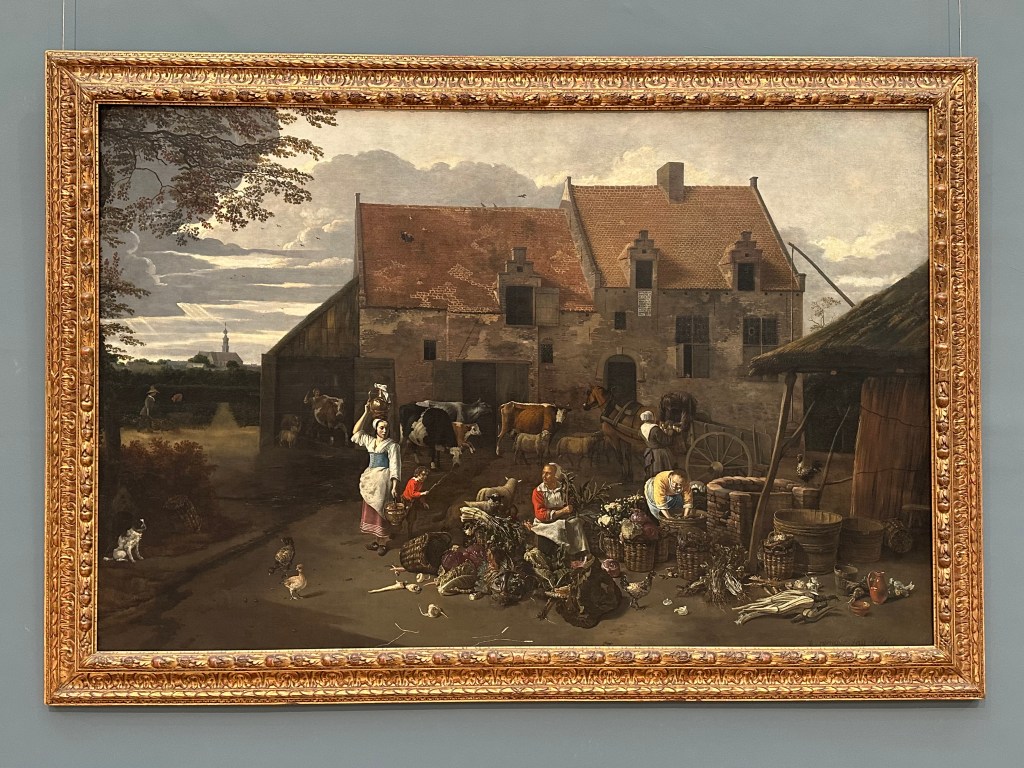
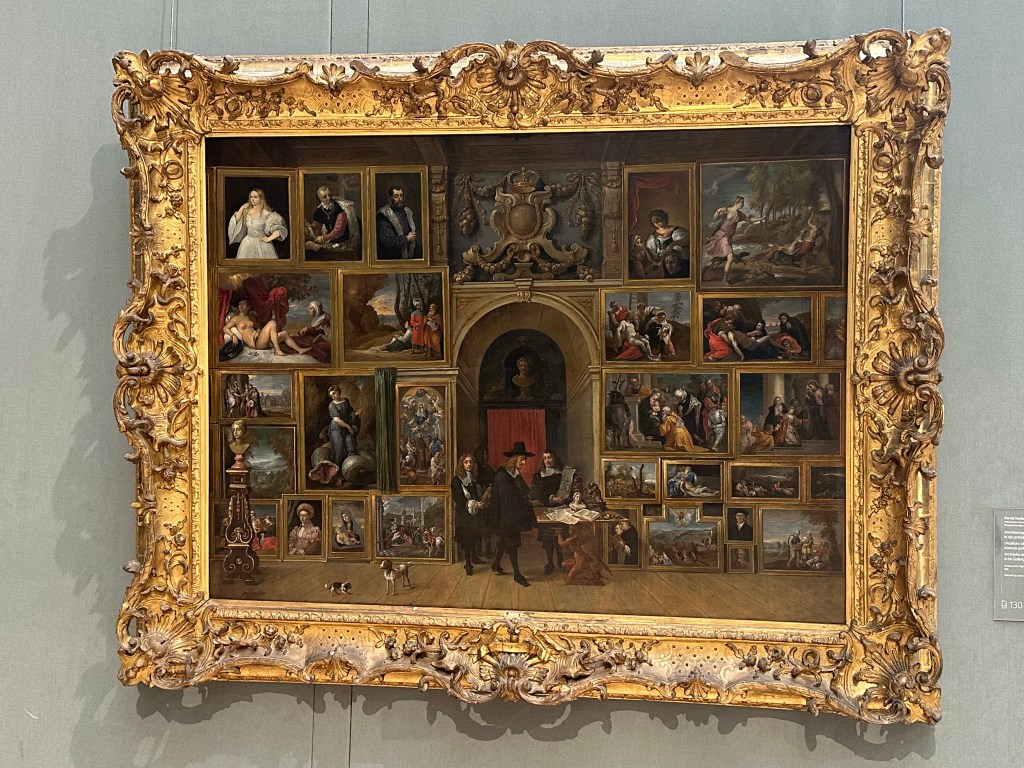
Esther Chilton’s Writing Challenge
Esther’s challenge word this week is taste. You can join in here: https://estherchilton.co.uk/2026/02/25/writing-prompts-104/
Coventry
When I was a young girl, I loved to read Enid Blyton’s book series. She wrote approximately 720 books during her writing life and had several popular series like The Famous Five, The Secret Seven, and The Adventure Series. Enid Blyton also wrote a few series about young girls attending private boarding schools in England. I enjoyed all of her books but the boarding school books, Mallory Towers and St Clare’s, fascinated me. I attended a dual medium (English and Afrikaans), co-ed (boys and girls) primary school so the idea of all girls at school together and spending nights in a dormitory with lots of other girls of the same age captured my imagination. One of the concepts Enid Blyton wrote about was sending someone to Coventry. Being sent to Coventry is a British idiom meaning to deliberately ostracize someone. It involves ignoring the person, refusing to speak to them, and acting as if they do not exist. It is a form of social punishment or a way of expressing disapproval of someone’s actions.
Over the past two weeks since I resigned from my job, I feel as if I’ve been sent to Coventry by my senior work colleagues. I went into the office twice the first week following my resignation the previous Friday. The second office visit, on a Thursday, was awful. There is no other word to describe it. I felt like I had walked into a wall of resentment and anger. I could almost feel and taste the disapproval. Of course, I may have read too much into the situation as I am an empath and overly sensitive to other people’s emotions and behaviours, but I don’t think I did. I take responsibility for my work and commitments, so I originally offered to stay on a contract basis to see through the projects I’m currently working on. This offer was thrown back in my face, and I ended up having words with two of my senior colleagues. It was upsetting for me because I am sensitive but also because I think it was an illogical and ill-conceived reaction. I am an easy target for guilt because I am a soft touch and generally willing to help others. These are the personal characteristics that caused the overwhelm that resulted in my decision to leave in the first place. The more you give, the more people take and the resultant stress was becoming a health problem for me as I wasn’t getting enough down time to destress and unwind. My back went into severe spasm in mid-January and the doctors say it had probably been in spasm for months. It is now out of spasm due to a stringent programme of exercise, physiotherapy, and painkillers. I am glad I don’t need strong painkillers any more. I don’t like taking medications for long periods. I am doing very well on a physiotherapy and exercise programme. I was extremely busy at work at the time when the spasm escalated so I only took one day’s leave to get the x-rays and bone density tests done.
I have always been an unusually fast worker. I grasp outcomes quickly and come up with solutions almost immediately. I am a backwards thinker, and I simply work the solution or outcome backwards to give everyone else involved a series of steps to get to the desired outcome. Many of my on-line friends remark on how much I get done and it’s because I am able to work so fast (probably up to 4 x faster than most people) and I also have a retentive memory. I never take notes or write anything down because I don’t need to. I always remember. It was only about a decade ago that I realised this is not a common attribute to all people. If your mind works a certain way, you just assume it is the same for everyone else. I have come to realise that working faster does not mean you don’t use up the same, or perhaps more, mental energy. Getting more done quicker requires compensatory down time to recuperate as your battery depletes in line with your output.
It has been disappointing to receive such an unexpected reaction. It took a lot out of me to recover my mental balance last week and it ruined my birthday on 22 February. I had a miserable day. This being said, I stayed away from the office completely this past week and didn’t engage with any of my direct seniors. It is a busy time of year, and they did not try to engage with me either. It was as if I’d already left from a communication perspective. I focused on my client work and getting as much wrapped up as possible before I leave. I am feeling much better now and have decided to spare myself unnecessary anxiety by staying away from the office. I will go in on my last week to wrap up my administration and hand in my computer. It seems a sad way to end a 14-year work period of my life.
resentment
tasting of lemon
curls tongue
aftertaste bitter
lasting a lifetime
Note: This piece is not intended to solicit sympathy or throw stones at other people. I am responsible in many ways for this reaction as I have taken on too much, helped to much, made others too reliant on me and it has worn me down and I’m unable to continue along the same path of philanthropy I’ve always walked. It is not possible to implement boundaries and reset expectations after 14 years; it requires a clean break and a fresh start. Work environments are designed to be capitalistic and so whatever you offer will be taken and used. I’ve shared this information as part of my journey to understanding and acceptance and also because I think it may help others in a similar situation. I also think I handled my resignation badly by reacting from a place of overwhelm. That is me though, I am an impulsive person.
Roberta Writes – In Touch With Nature – Common Buzzard
Thank you to Kaye Lynne Booth for hosting this post about the common buzzard which is anything but common.
Roberta Writes – Esther Chilton’s Writing Prompt & CFFC & Sunday Stills
Esther Chilton’s prompt word for this week is DRIVE. You can join in here: https://estherchilton.co.uk/2026/02/11/writing-prompts-102/
I’ve written a Tanka Peunte poem.
Racing Snake
bumper to bumper
three lines snake in; three snake out
not driving – waiting!
constricting coils draw tighter
consideration turns blue
“Drive slow and enjoy the scenery, drive fast and join the scenery.” – Douglas Horton
black mamba slithers
along highway; racing dusk
tyres just touching
asphalt spun out like ribbon
driving with abandonment
CFFC
Dan’s prompt this week is gadgets and gismos. You can join in here: https://nofacilities.com/2026/02/16/gizmos-and-gadgets-cffc/
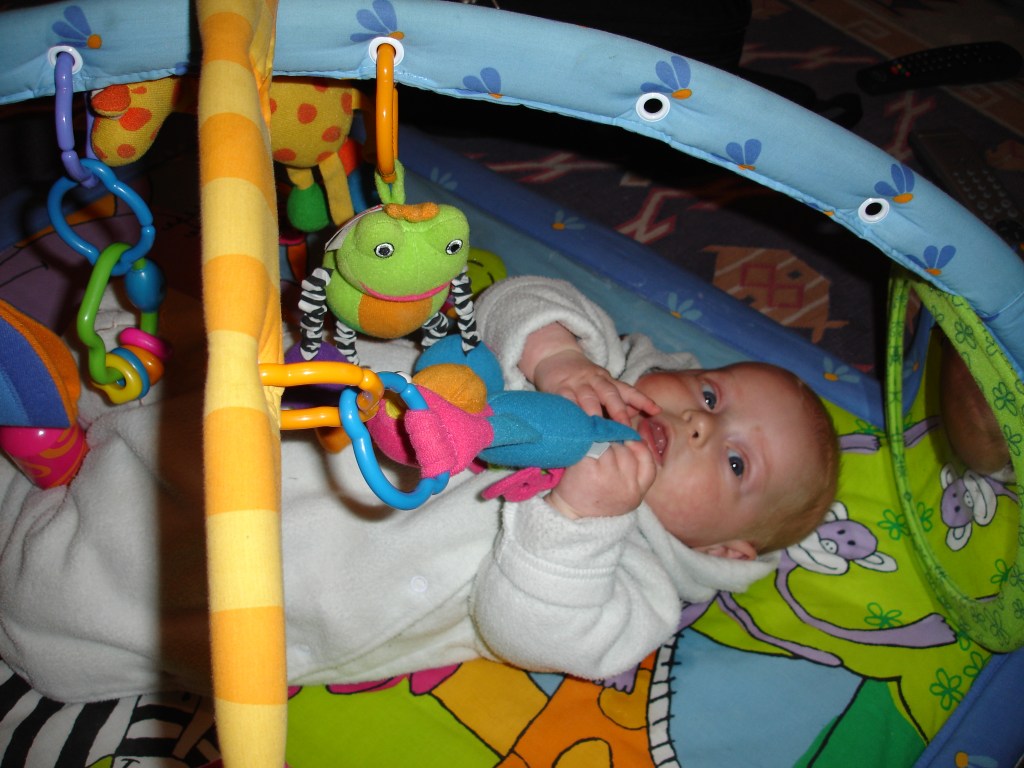
Sunday Stills
Terri’s Sunday Still’s challenge is sweet. These are photographs of early cake and other sweet creations I made for parties for my sons.
You can join in the challenge here: https://secondwindleisure.com/2026/02/15/sunday-stills-simple-and-sweet/
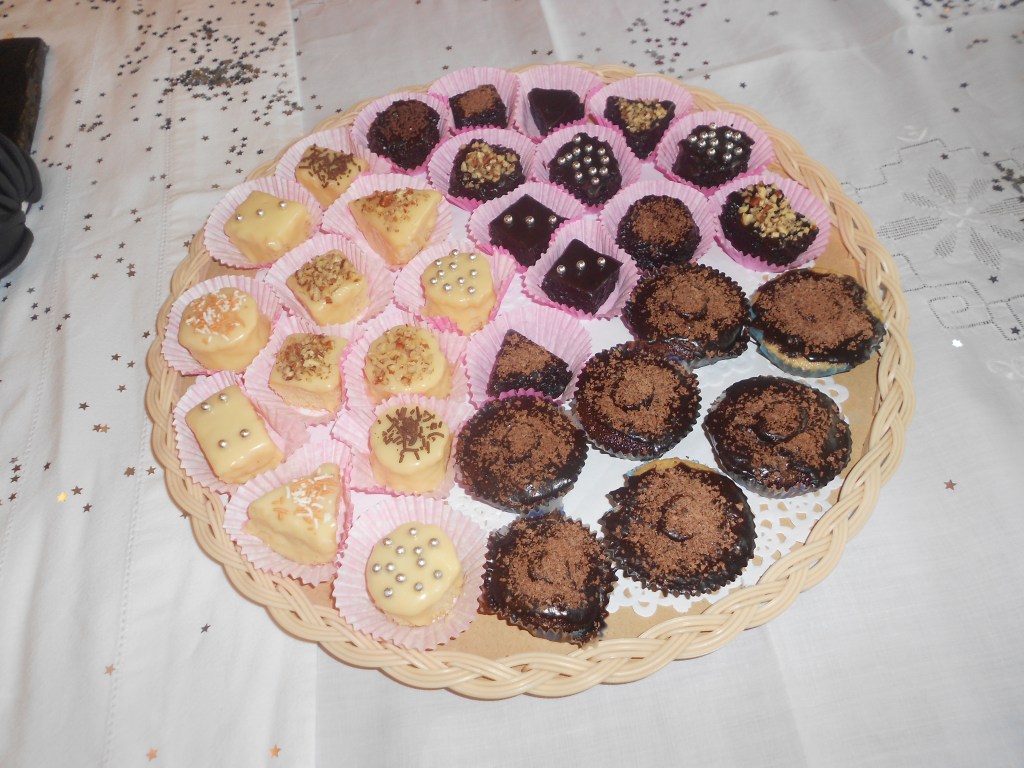
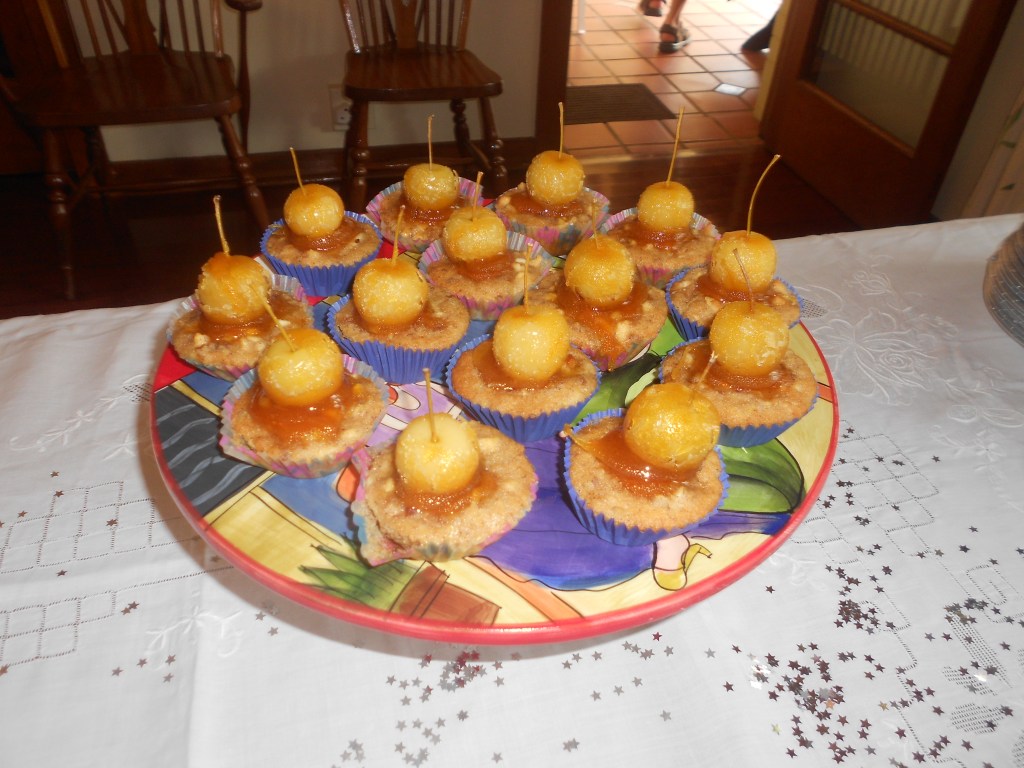

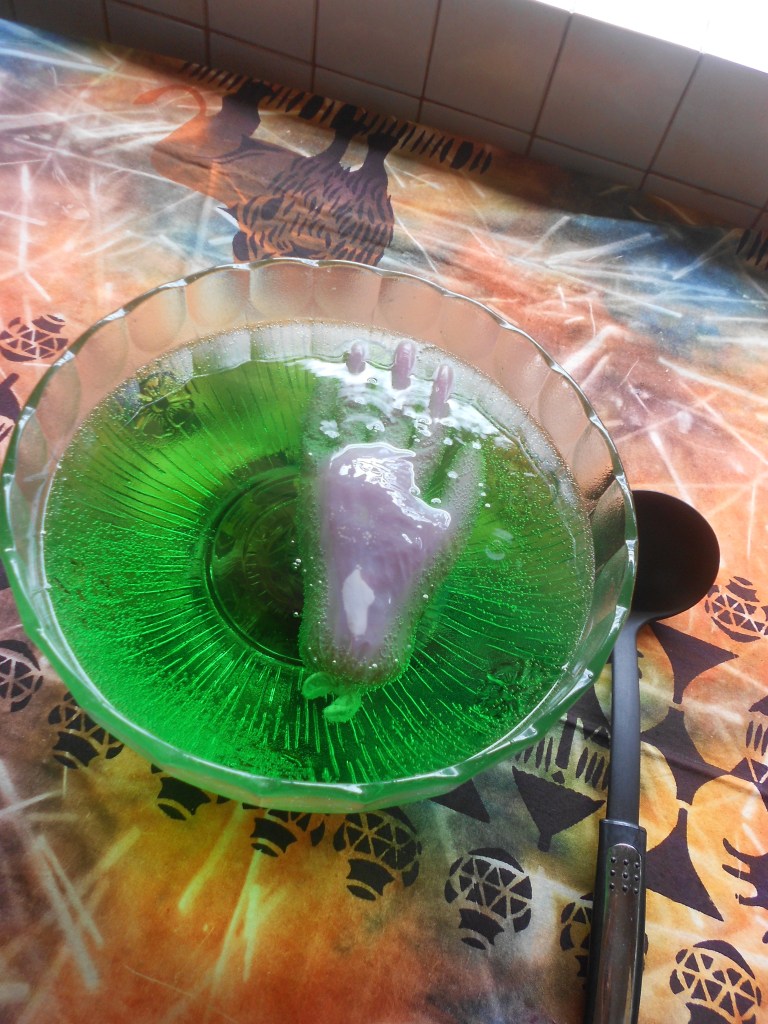
Simple Pleasures: Reading and Eating – Whispers of a Southern Moon by Priscilla Bettis and Vintage Jello Salad Potluck Dish
Thank you to Priscilla Bettis for being a lovely guest. Comments are close here. Please leave your comments on LatinosUSA.
Roberta Writes – d’Verse, W3 and Thursday Doors
It’s been a bad week. I ended up resigning from my job yesterday. It is time but its been a hard decision because there are a lot of people I like at the firm and I know they need me. This is my ninth and final resignation. But the cemeteries of the world are filled with indispensable people so the firm will go on. It will just be that much harder for the people I like and respect.
My week reflects in the poem I’ve written for d’Verse Open Link hosted by Bjorn. You can join in here: https://dversepoets.com/2026/02/12/open-link-401-and-february-live/
Vampirism
the more you give
the more some people take
attaching themselves
like starving leeches
gorging on your life blood
becoming fat and bloated
greed waxing into laziness
while you diminish
energy drained
passion destroyed
reduced to a breathing corpse
Then, they spit you out
moving on to exploit
the next high performer
W3
Svenja’s prompt: Haiga. You can join in here: https://skepticskaddish.com/2026/02/11/w3-prompt-198-weave-written-weekly/
The theme is “Let the overall theme reflect the long-awaited shift from winter to spring.”
South African weather is very different to Northern hemisphere weather. We get no rain for over six months during the winter period and as we exit winter, it gets incredibly hot and dry before the rains come in late October or early November.
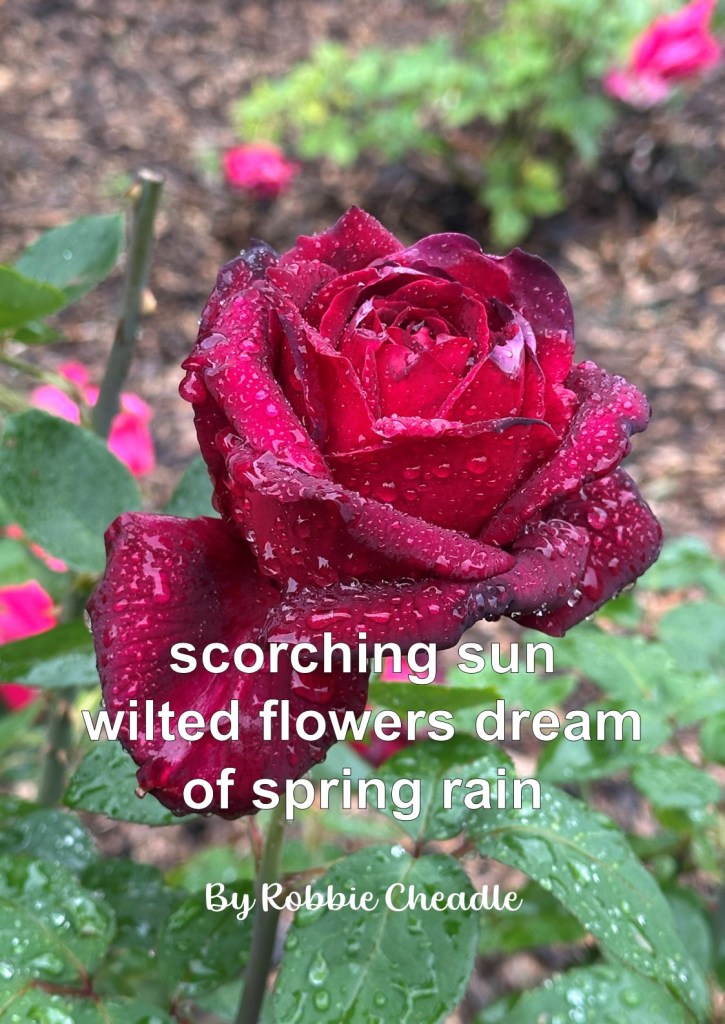
My photograph is of a beautiful red rose after a rainstorm.
scorching sun
wilted flowers dream
of spring rain
Thursday Doors
For Dan’s Thursday Doors, I am sharing a video of a building I made in Brussels. The video shows a building with all the doors and windows. The fascinating aspect of this building is that its decorated with bicycles painted in the primary colours.
I am sharing this for my talented artist and dress designer blogging friend, Resa. You can find Resa’s amazing art blog here: https://graffitiluxandmurals.com/2025/01/04/skart/. This post by Resa, titled Skart, features some amazing skateboard art and a poem about skateboarding written by me.
Roberta Writes – “The Soldier and the Radium Girl Part 1: The Bloom of Youth, Chapter 1: Enlist in haste, repent at leisure (cont. 17 & 18)” by Roberta Eaton Cheadle
Thank you, Nolcha Fox, for publishing parts 17 & 18 of this book. The end of chapter 1 is in sight.
Jake Tanner
Letter from Private Jake Tanner to his fiancé, Kate Henderson 8 January 1918
My dearest Kate
Happy New Year, I hope it will be a good one for us both.
I received your Christmas package and am grateful to you for its thoughtful contents. The food here is still dull and repetitive and there isn’t enough of it, so we are always hungry. The extras you’ve sent will help, but not a day passes that I don’t wish I was back home eating good home cooking.
Continue reading here: https://chewersmasticadores.wordpress.com/2026/02/06/the-soldier-and-the-radium-girl-part-1-the-bloom-of-youth-chapter-1-enlist-in-haste-repent-at-leisure-cont-17-by-roberta-eaton-cheadle/
Jake Tanner
30 January 1918
Tensions were high among the men. Everyone was desperate to know when their move to the front would happen.
Rumors abounded that the enemy was in a bad way. The newspapers continued to carry stories about the strikes that plagued Austria-Hungary since the 3rd of January. Apparently, workers were demanding an end to the war.
The latest headlines screamed that the German workers also embarked on a mass strike. There was no food in the German cities, and the people wanted an end to the war.
Continue reading here: https://chewersmasticadores.wordpress.com/2026/02/13/the-soldier-and-the-radium-girl-part-1-the-bloom-of-youth-chapter-1-enlist-in-haste-repent-at-leisure-cont-18-by-roberta-eaton-cheadle/
